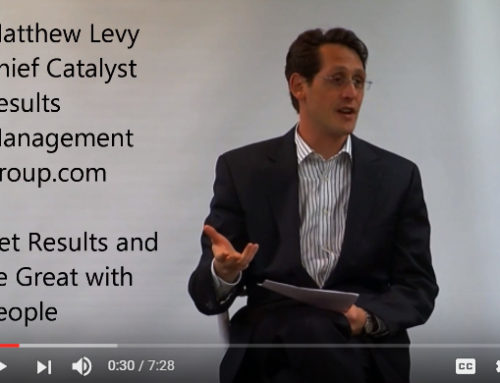In business as in life, we can experience much disappointment when we don’t achieve the results we seek. It is easy for us to blame others for not doing what we want them to do. What is more difficult is to be responsible for the conversations in which we attempt to ask for what we want. Much of the time, our unfulfilled expectations are a result of the way we manage requests and promises. It is in those conversations that we have the opportunity to enhance the likelihood of getting the results we are committed to and to transform the relationships with people that we collaborate with.
When you have a complaint, something that bothers you, or something that you want to see accomplished, that requires the participation of another person, What do you do?
Complaints are Not Requests
Often when we have complaints, we speak about them thinking that they are requests or thinking that people will know what to do with our complaints. Others may guess what we want when we complain. Alternatively, they may do nothing but listen, which is not inappropriate The issue here is that complaints are not requests; they are complaints. Unless we convert the complaint into a request, people won’t likely know what we want from them and it is very unlikely that they will do what we desire. For example, complaints like, “Our company is horrible at [fill in the blank] or “Nobody cares what I have to say,” are not requests for being better or for others to care. Just as statements are different than questions, complaints are different than requests. When we have complaints, what there is for us to do is to convert it into a request. When we hear a complaint, what there is to do is listen to it, ask questions to understand it, and help the person to make specific requests or otherwise take action to address their complaint.
Making Complete and Powerful Requests
A powerful request empowers the requester and the listener because it is authentic, clear, specific, and understood – and thus it can be negotiated to create committed action. A disempowering request is not specific enough to accurately represent what the requester wants or frequently won’t be understood by the listener – making action that would get the desired result unlikely. At a minimum, a complete request includes specifics about what, who, and by when, but may be much more detailed than that.
The Proper Response to a Request
I propose that there are 4 appropriate responses to a request: “Yes,” meaning that you accept the request as it was made, “No,” meaning that you do not accept the request as made and have nothing more to add, a counter offer, meaning that you have a something else to offer that you would be willing to do instead of the original request, or a promise to respond to the request at some later time. Any other response than some version of the above, like “maybe,” for example, leaves the conversation incomplete with no certainty of completion.
Negotiating Requests and Promises Creates a Performance Culture
Taking the time and interest to transform complaints into complete and thoughtful requests and to openly negotiate committed promises that work for everyone can greatly enhance relationships and predictability of results, thus contributing greatly to creating a performance culture. This happens for at least three reasons:
1. Transforming complaints into requests makes them actionable. People don’t usually know what to do with complaints thus they often disempower and annoy people. Requests empower people to enter into an empowering conversation about solutions and promises which put people into action to get things done.
2. Permission to Say “No” means a possibility for a more committed “Yes” and enhanced predictability of results. If people trust that they have the freedom to say, “no,” or make a counteroffer to a request, then, and only then, can they freely choose to say “yes.” Thus, the possibility of not yes makes the “yes” a more committed yes when you get one. A committed yes, along with the value of integrity (behaving consistently with one’s promise) increases the likelihood of the promised action occurring. This means less follow-up is required, which saves time, and also enhances the likelihood of the results being accomplished (assuming the requested actions are actually aligned with the results desired).
3. Ability to Negotiate fosters Relationship, Creativity, Trust, and Collaboration Creating relationships with others that allow for other than a “yes” response to a request, fosters a performance culture by having people be honest about what they are willing to do. It also fosters openness, trust, and understanding, and creates the opportunity for new ideas.
Shoot us a note to start a conversation to let’s explore what creating a performance culture can look like and do for your company.

Matthew Levy is the Chief Catalyst and principal of RESULTS MANAGEMENT GROUP, LLC, a growth management consulting and executive coaching firm that dramatically shifts business results by facilitating the creation of compelling visions and strategies, aligning executive and other management teams, developing an organizational capacity to manage execution and designing organizational environments and family business governance that support collaboration and the attainment of dramatically better results in any area.





